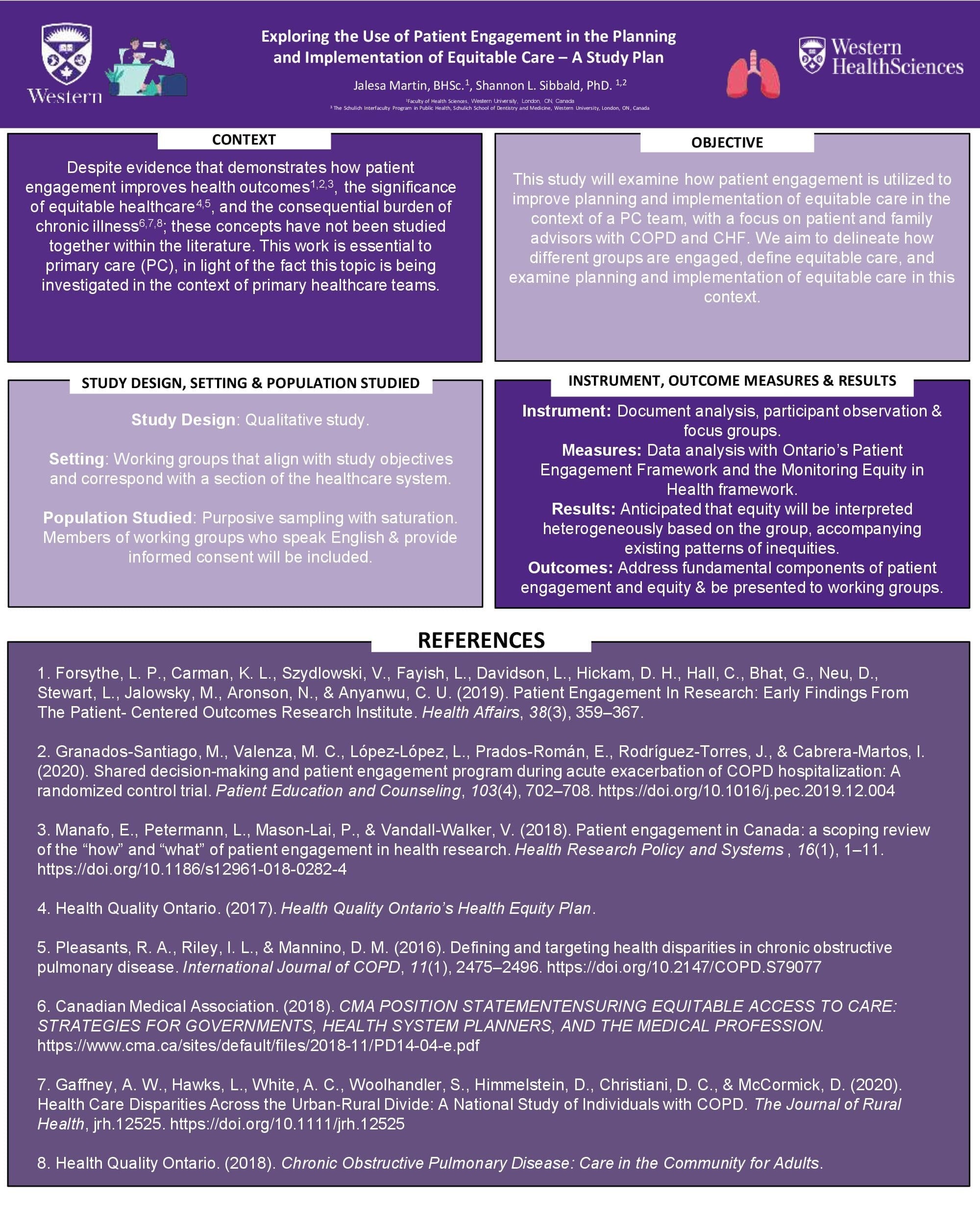PRP036: Exploring the Use of Patient Engagement in the Planning and Implementation of Equitable Care – A Study Plan
Jalesa Martin, BHSc; Shannon Sibbald, PhD
Abstract
Context: Focusing on patient engagement will help to meet the quadruple aim goal of care that improves the patient experience, population health, the work life of healthcare providers, and reduces the economic burden on the healthcare system. This work is important to primary care because this topic is being explored in the context of primary healthcare teams. Despite the evidence that shows how patient engagement improves health outcomes, the importance of equitable healthcare, and the significant burden of chronic illness; these concepts have not been studied together within the literature. Furthermore, patients with circulatory system illnesses primarily receive their care through primary care providers. Objective: Explore how patient engagement is used to improve the planning and implementation of equitable care in the context of a primary health care team, with a focus on patient and family advisors (PFAs) with COPD and CHF. Objectives include describing how patient and family advisors are engaged; determining how PFAs define equitable care; and examining the planning and implementation of equitable care for PFAs with COPD and CHF in this context. Study Design: Qualitative study. Setting: Working groups associated with a section of the healthcare system. Includes a group that focuses on co-design with stakeholders and patients, a patient-and-family advisor-led group, and a group that focuses on operations. Population Studied: Included if they are in one of the working groups, speak English and provide informed consent. Excluded if they are not in one of the working groups, do not speak English and cannot provide informed consent. Sampling will be purposive. Sample size will be determined by saturation. Instrument: Document analysis, participant observation, and focus groups. Outcome Measures: Data analysis with Ontario’s Patient Engagement Framework and the Monitoring Equity in Health and Healthcare Conceptual Framework. Results: Anticipated that equity will be defined differently based on the working group. Data will likely demonstrate avoidable patterns of inequities faced by PFAs, and partnership as a key factor in planning and implementing equitable care. Responsiveness to equity concerns might be preliminary, while final data analysis will focus on supporting and improving upon current efforts. Outcomes to be reported will summarize and address key areas of patient engagement and equity, then be presented to each of the working groups.

Jack Westfall
jwestfall@aafp.org 11/21/2021So great to see student presenting, and to see more patient engagement research at NAPCRG. nice work. thanks for sharing.